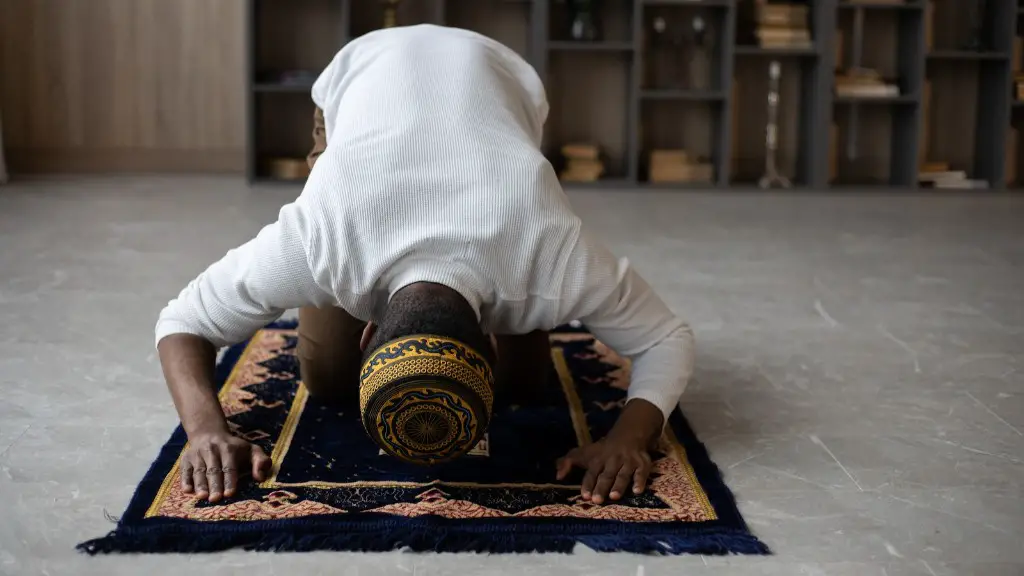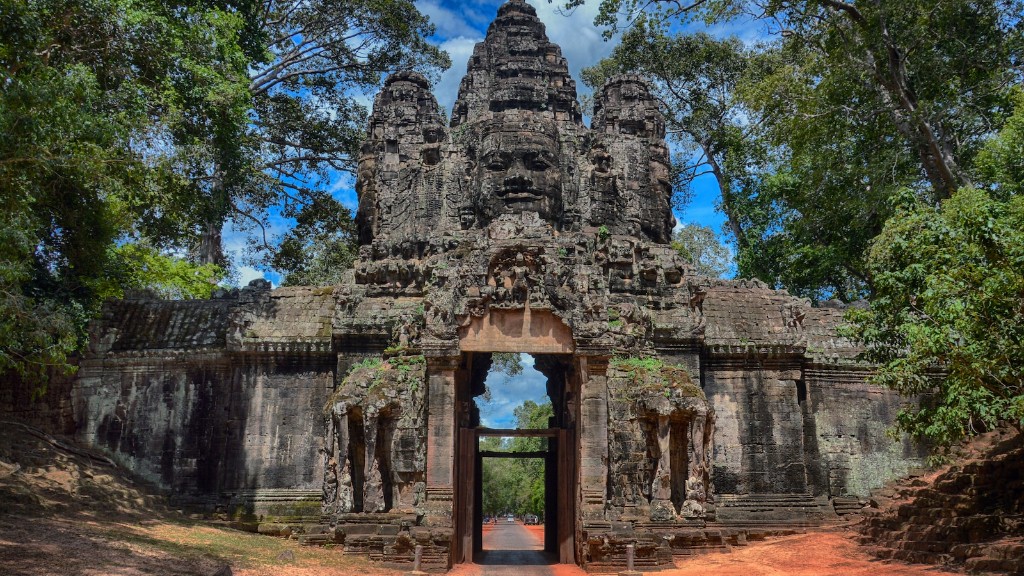According to Hinduism, the world and its inhabitants will eventually perish. As with other religions, Hinduism suggests that the universe and mankind will eventually come to an end, but the belief is closely linked to the cycle of birth and death, known as samsara. Hinduism states that the universe is created and destroyed many times for an eternity and the world is constantly being recreated by the cycle of karma.
The end of the world will come when the Universe undergoes a massive dissolution into ‘Pralaya.’ This is when the World falls apart, and everything is brought back to its original nondifferentiated state. This dissolution is known as ‘mahapralaya’ and is what will end the physical universe. This dissolution is an essential process to start the shifts in the universe – allowing for evolution and the path to divine fulfillment.
The Hindu scriptures do not give an exact date or time frame when the world will end or when mahapralaya will start. In fact, Hindus believe that different prophecies may come true at different times in different places. Hindus also believe that the end will occur as a slow process of gradual degeneration. When the end comes, time will begin to slow, and the universe will be overwhelmed by darkness and chaos.
Hindu scriptures suggest that amid the chaos of the universe, few will escape the end of the world. In the Hindu tradition, those who escape are considered to be righteous and have followed the path of dharma. They will be the ones who survive and go on to create a new world order after the dissolution of the universe.
The Mahabharata and the Bhagavata Purana are two scriptures that discuss at length what could happen when the world ends. They offer insight into the end of times, focusing on many events such as ‘the rise of evil,’ ‘the fall of virtue,’ and ‘the downfall of the gods’. According to some interpretations, these scriptures also imply that there will be a great battle between good and evil, which will determine the fate of humanity.
The Hindu faith is rooted in the concept of reincarnation, which states that after death, the soul will enter a new body in another life. Hindus believe that the cycle of birth and death is endless and this cycle can only be broken if one reaches moksha – the liberation from the cycle of life. As such, Hindus also believe that the end of the world can also be viewed as a doorway to moksha.
The Nature Of Dharma
The ancient Hindu scriptures outline the concept of Dharma – a set of spiritual laws that dictate how one should behave in order to achieve a successful life. Dharma is the framework for the universe, and Hindus believe that Dharma will be restored when the world ends, regardless of whether it is accompanied by evil forces. In Hinduism, Dharma is understood to be the most significant concept, and those who adhere to Dharma may escape the ending of the universe and achieve higher enlightenment.
It is believed that the individual’s Dharma is an expression of the universal Dharma, known as the Sanatana Dharma. These two Dharmas often differ greatly, as the individual Dharma is based on personal beliefs, values, and life experiences whereas the Sanatana Dharma is a universal code of ethics and behavior. Dharma can also be seen as a set of spiritual and moral guidelines for the world and for individuals, providing a framework for order, justice and righteousness.
The concept of Dharma is closely tied to the belief of karma, the idea that one’s actions will determine their future and the future of the universe. In Hinduism, karma is seen as the universal law that governs the cycle of life and death, and it is believed that following good karma and Dharma will lead one towards moksha, or liberation. The power of Dharma also plays an important role in the concept of enlightenment and salvation, as those who fulfill their Dharma will reach a state of unity with the universe, transcending the cycle of life and death.
God Krishna
According to Hinduism, God Krishna plays a major role in the end of the world. He is viewed as the destroyer of the world, and His teachings about Dharma serve as a powerful reminder for people to be mindful of their actions. According to the Bhagavata Purana, God Krishna will be the one to take control once the Universe strucks Pralaya. He is believed to help those who want to seek salvation and guide them back towards the path of Dharma
In Hinduism, God Krishna is seen as the avatar of Vishnu – the God of the universe, and He is responsible for the preservation of Dharma. God Krishna is seen as a figure of grace and compassion and is often referred to as a supreme being. He is believed to be the embodiment of cosmic knowledge, and His wisdom is seen as an invaluable source that can lead people towards enlightenment.
In the Hindu religion, God Krishna is seen as the protector of Dharma, and He is believed to take shelter at the end of the world to spread wisdom and understanding. He is also seen as a source of power and strength, and those who are pure of heart and righteous may rule under his guidance.
God Shiva
God Shiva is another major figure in Hindu mythology, associated with the end of the world. God Shiva is a powerful deity and is also known as the lord of destruction and transformation. In Hinduism, He is seen as the man who will bring an end to the world and usher in a new dawn.
God Shiva’s role in the end of the world is of great importance, as He symbolizes the balance between good and evil. He brings an end to the darkness in order to restore order and light to the universe. It is also believed that God Shiva is the one who will break the cycle of samsara and help people find liberation from suffering and pain.
God Shiva is also seen as the source of creation as He will create a new world order after the destruction of the old one. He is believed to bring forth a divine energy that will help people to move towards enlightenment and enable them to see beyond the veil of Maya – the illusion of the physical world.
The Path To Salvation
In Hinduism, reaching moksha is seen as the only way to escape the cycle of death and rebirth. The path to enlightenment is the path of devotion to God, and those who are devoted to God are believed to be the ones who will be saved from the dissolution of the Universe. Those who reach this level of devotion will be able to transcend the physical world and will no longer be bound to suffer the pain and suffering of samsara.
The key to achieving moksha is to follow Dharma and to seek knowledge. Hindus believe that through devotion to God and Dharma, one can reach a higher level of consciousness, enabling them to transcend the physical world and go beyond the cycle of death and rebirth. Hindus also believe that those who follow Dharma will be the ones who will be rescued from the destruction of the universe, finding salvation in the form of moksha.
The end of the world, as seen by Hinduism, is often described as chaotic and destructive, but it is also seen as a doorway to liberation and enlightenment. Hindus believe that with guidance and faith, one can emerge from the destruction unscathed and begin the journey towards a higher level of consciousness.

